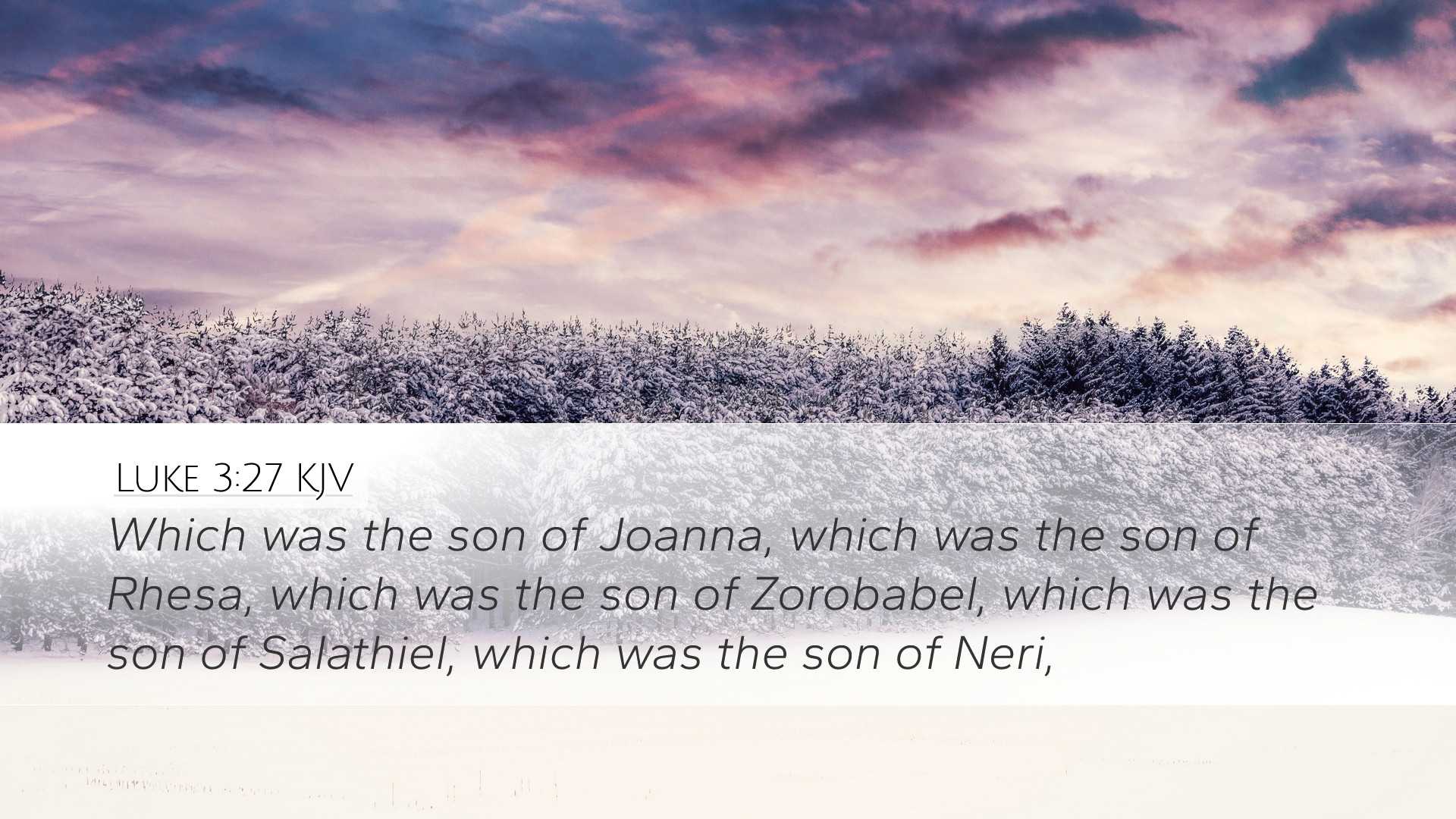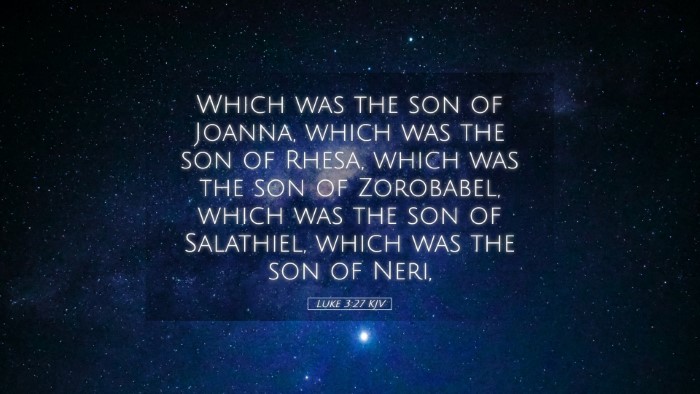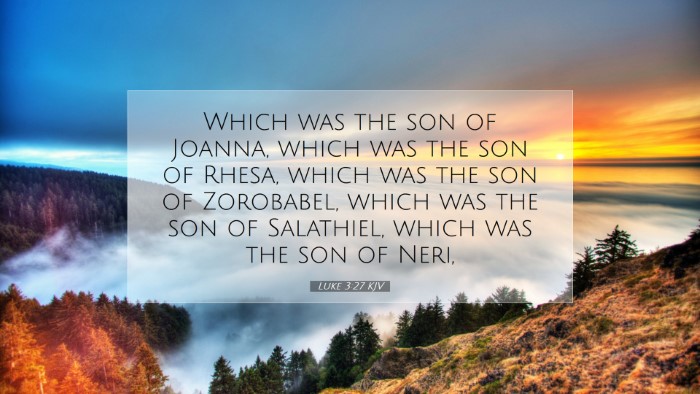Commentary on Luke 3:27
Verse: "Which was the son of Joannas, which was the son of Rhesa, which was the son of Zorobabel, which was the son of Salathiel, which was the son of Neri," (Luke 3:27, KJV)
Overview
This verse is part of the genealogy of Jesus Christ as recorded in the Gospel of Luke. The genealogical list emphasizes the rightful lineage of Christ, tracing His ancestry back through significant figures in Israel's history. The inclusion of these names serves both a theological and historical purpose, connecting Jesus to the Davidic line and to the broader narrative of God's covenant with Israel.
Theological Significance
The genealogy in Luke 3:27 highlights several key theological points that are essential for understanding the nature of Jesus Christ and His mission:
- Messianic Lineage: Christ is positioned within the Messianic line, fulfilling Old Testament prophecies concerning the Messiah’s origin.
- Divine Sovereignty: The specific names demonstrate God’s sovereignty in human history, as He orchestrates the lineage leading to the Incarnation.
- Universal Reach: By tracing Jesus’ genealogy through notable figures, Luke illustrates that salvation is available to all, not just the Jews.
Insights from Commentaries
Matthew Henry's Commentary
Matthew Henry highlights the importance of Luke's genealogy, emphasizing the holy and royal lineage of Jesus Christ. He states that each name in the genealogy is significant, as they collectively demonstrate God's faithfulness to His promises. Henry particularly notes the inclusion of Zorobabel, who represents the restoration of Israel, suggesting that Christ's coming is the fulfillment of hope and restoration for the nation.
Albert Barnes' Notes
Albert Barnes provides closer scrutiny on the individuals mentioned in Luke 3:27. He points out the transition from the Babylonian captives to the return to Israel, embodied in Zorobabel and Salathiel. Barnes elaborates on the role of Zorobabel in leading the remnant back from captivity, symbolizing not only physical restoration but also spiritual renewal. His commentary underscores how each name in the lineage illustrates the unfolding of God’s redemptive plan through history.
Adam Clarke's Commentary
Adam Clarke offers insight into the historical context of the names listed in the genealogy. He remarks on the significance of Rhesa and his role as a link between the more recognized figures of the lineage. Clarke indicates that despite the seemingly obscure names, each contributes to the authenticity of the genealogy, affirming that Jesus came from a line that includes both prominent and lesser-known ancestors. He points out that these names serve as evidence of Jesus’ real humanity, thus reinforcing the doctrine of the Incarnation.
Application for Today
The genealogical records may seem like a mere listing of names, but they carry profound implications for modern believers:
- Identity in Christ: Just as Jesus’ lineage defines His identity, our identity is rooted in Him. Believers can find assurance and purpose as children of God.
- God’s Faithfulness: The genealogy serves as a testament to God’s unchanging nature and His faithfulness through generations, encouraging us to trust in His promises.
- Inclusivity of the Gospel: The diverse names remind us of the inclusive nature of salvation, calling all people to repentance and faith in Jesus.
Conclusion
Luke 3:27 is more than a genealogical notation; it encapsulates the entirety of God's redemptive history leading to the Messiah. By exploring this verse through the insights of noted commentators, we glean a deeper understanding of Christ's identity while affirming God's sovereign role throughout history. For pastors, theologians, and students, this verse serves as a reminder of the rich tapestry of faith that weaves through the biblical narrative, calling us to reflect upon our own spiritual heritage and response to God’s grace.


